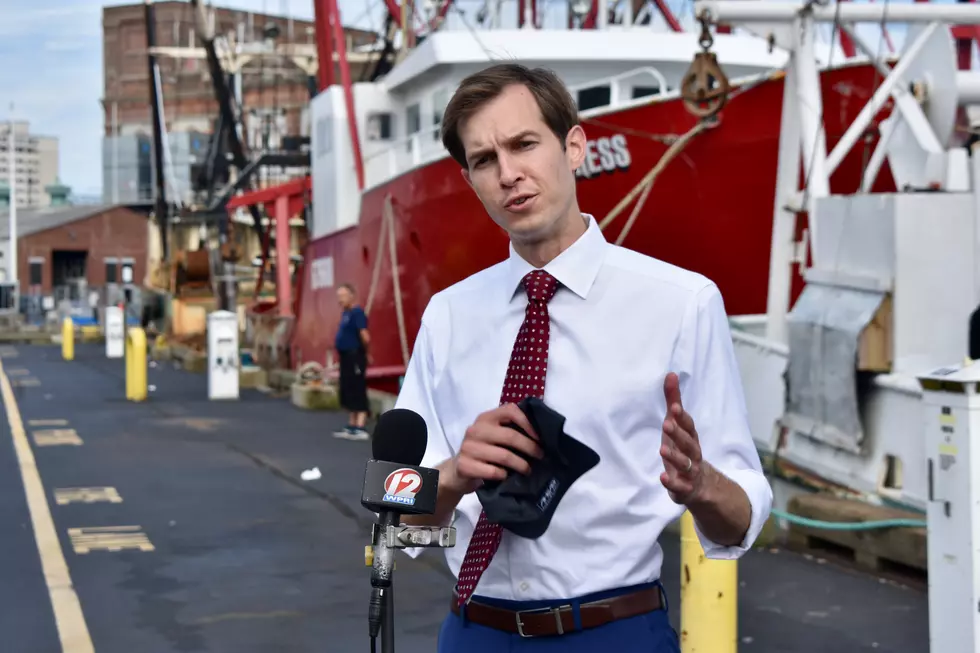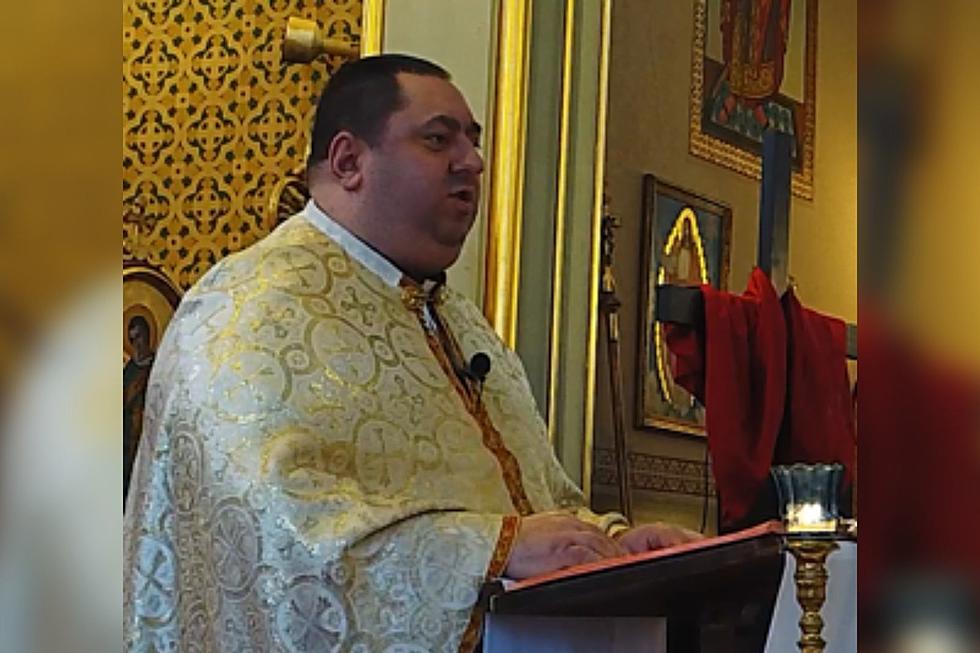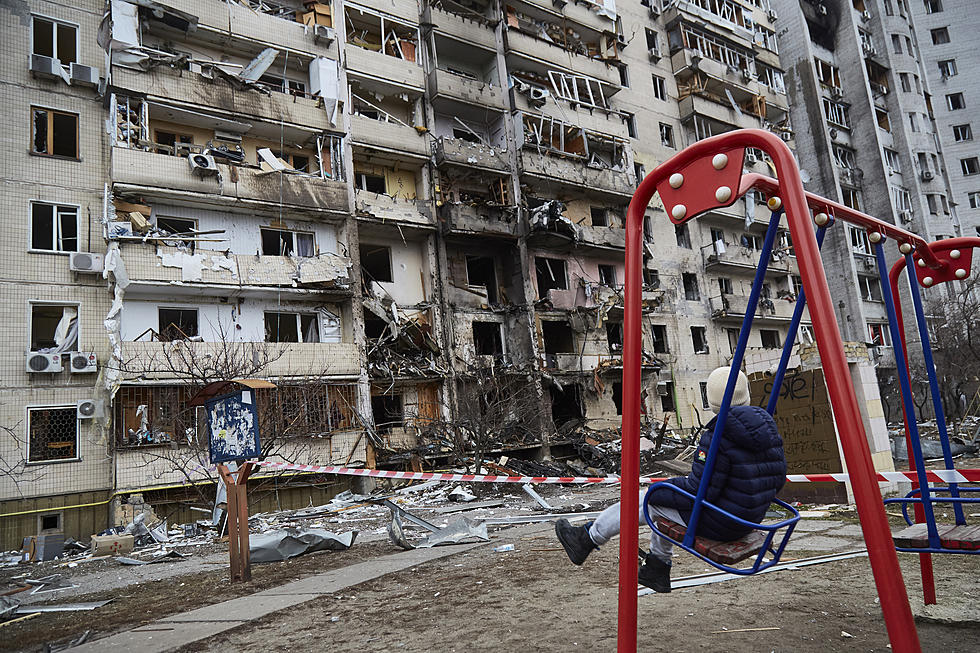![Three Burning Questions After the Mueller Report [OPINION]](http://townsquare.media/site/518/files/2019/03/GettyImages-11379603201.jpg?w=980&q=75)
Three Burning Questions After the Mueller Report [OPINION]
The American work week ended with a bombshell on March 22, 2019. Robert Mueller’s role in the investigation of our 45th president had come to a conclusion, giving the American public and news media plenty of fodder for speculation and analysis over the weekend.
Attorney General William Barr submitted a letter addressing the Senate and House Judiciary Committees to confirm the submission of the Special Counsel’s final report on Russia’s interference in the 2016 elections and related matters. With considerations of national security, grand jury secrecy, and other privileged information, the report is currently being reviewed by the Attorney General’s Office with the assistance of the Special Counsel before its release to the public.
So what’s next? Much of that depends on the decisions of people not named Robert S. Mueller III. Let’s try to answer, to the best of our ability, the three most important FAQs of this new development.
How much of the report will we get to see?
For now, that is almost entirely within the discretion of Attorney General William Barr. As Ken Starr, the Special Counsel in charge of investigating the Clinton-Lewinsky scandal, recently noted:
“In contrast to the practices and policies that govern thousands of federal prosecutors around the country, this former FBI director—now a special counsel—has a specific reporting obligation. That solemn obligation is not to produce a public report..Under the regulations that governed his appointment and now guide his final acts, Mueller is to provide a confidential report to one person only: the attorney general.”
According to the regulations governing Special Counsel, specifically Section 600.9, at the conclusion of the Special Counsel’s investigation, the Attorney General is merely required to notify the chairpersons and ranking minority Congressional Judiciary Committee that the Special Counsel’s report has been submitted, and if there was at any point in time when the Attorney General concluded the Special Counsel acted inappropriately under departmental regulations. Barr has satisfied this requirement with his letter to the respective committees on Friday, informing them that the report has been submitted and that there was no wrongdoing on behalf of the Special Counsel during the course of the investigation.
According to that same regulation, Barr may release the report if he decides it is in the public’s best interest, insofar that the release of that information complies with the applicable legal restrictions. Meaning, if Barr finds it is in the best interest of the public, he can release the report with redacted language that keeps privileged information out of public access.
As of this writing, Barr has submitted his summary of the Mueller report to the Congressional Judiciary Committees. The letter summarizes Mueller's findings as well as informs Congress that the report is still under review. Given the House’s virtually unanimous vote (420-0) to make the report public, it’s unlikely Congress will accept anything less than a comprehensive release of Mueller’s findings. A report that is withheld by the Attorney General or determined to be too redacted is likely headed for a legal battle in the courts, and satisfactory release of the report will likely result in weeks of combing-over by Congress and the American public alike. Either way, this report will dominate the conversation in the coming months.
So, it’s FINALLY over right?
Nope. Well for Mueller, yes. But there are still loose ends to be tied up in by other investigative bodies of government.
The U.S. Attorney's Office of the Southern District of New York, which because of its jurisdiction over Manhattan is considered the highest profile prosecutorial body in the nation, is handling several matters along with other federal districts to be investigated at the referral of the Special Counsel.
Many of the matters in the Southern District branched from the case of Michael Cohen, Trump’s former lawyer and fixer who was recently sentenced to a three-year prison term for lying to Congress, and was found to be making “hush payments” to a woman with whom Trump had an affair. Prosecutors at the Southern District have already said that Cohen made the hush payments at the direction of Trump. Such a directive would violate federal campaign laws, but the investigation remains ongoing. Also, because Mr. Trump did the majority of his work as a developer from Trump Tower in Manhattan, almost the entirety of his business dealings are under the Southern District’s jurisdiction. The number of cases referred to other U.S. attorneys' offices isn't clear, but we know three separate offices are handling high-profile cases that are still ongoing.
The Eastern District of New York in Brooklyn is currently investigating possible foreign donations made to Trump’s record-breaking $107,000,000 inaugural committee. Foreign donations to federal campaigns and inaugural committees are illegal under federal election law. Early this year, federal prosecutors ordered the committee to turn over all documents related to the inauguration’s donors, guests, vendors, contracts, gratuities given out by the committee, and more.
The Eastern District of Virginia still maintains jurisdiction over the matter regarding Michael Flynn. Flynn, Trump’s briefly tenured National Security Advisor, resigned less than a month after his appointment when it was discovered he was misleading Vice President Mike Pence and the FBI about his communications with the Russian Ambassador to the United States. In December of 2017, he pled out to a single count to the crime of making false statements in exchange for cooperation with the Special Counsel investigation. He has yet to be sentenced.
The U.S. Attorney for the District of Columbia's Office is in charge of handling Roger Stone’s prosecution. Stone is an unapologetically infamous D.C. lobbyist and a business partner of convicted Trump campaign chairman Paul Manafort. Stone is also a longtime friend of Trump, and architect of his presidential aspirations. He is currently under federal indictment for witness tampering, obstructing a federal proceeding, and five counts of making false statements. Stone is accused of working in concert with the head of Wikileaks Julian Assange in releasing the hacked emails of Hillary Clinton’s campaign chairman John Podesta during the 2016 presidential election.
At the state level, New York Attorney General Letitia James has opened up an investigation into questionable financing by Deutsche Bank and Investors Bank in four major projects of the Trump Organization, and an unsuccessful effort to purchase the Buffalo Bills in 2014. Deutsche Bank, one of Trump’s primary financiers, is already under intense scrutiny as the subject of two congressional investigations and a raid by German police at their headquarters in Frankfurt as part of an investigation into money laundering. Unlike the other matters in the DOJ, the New York AG’s investigations are civil, not criminal, but some have floated the possibility of the AG attempting to force the dissolution of the Trump Organization.
Lastly, there’s the newly-inaugurated Democratic House of Representatives, which is making good on its promise to investigate the potential nefarious activities of the president and his associates, investigations which the Democratic representatives felt were stymied by Trump loyalists in the House when the Republicans were in power. Most notably, at the end of a long, largely unrevealing Congressional testimony by Michael Cohen, he was hit with a series of concise and well-formed questions by freshman phenom Alexandria Ocasio-Cortez. This line of questioning, and Cohen’s answers to them, gave cause for House Ways and Means Committee (chaired by Massachusetts’ own Richard Neal) to issue subpoenas for Trump’s long sought-after tax returns.
No new indictments from Mueller, so Trump’s in the clear?
Yes and no. So far, what we know about what Mueller found is that Trump has not committed a crime, nor was his campaign found to have colluded with Russia. However, he has not been exonerated of any wrongdoing, particularly in regards to the accusations of obstruction of justice. This was a predictable finding of the investigation, as Benjamin Wittes, editor in Chief of Lawfare, notes:
“The president should wait before popping the champagne corks over this and tweeting in triumph. Yes, in the best-case scenario for the president, Mueller is not proceeding further because he lacks the evidence to do so. But even this possibility contains multitudes: everything from what the president calls “NO COLLUSION!” to evidence that falls just short of adequate to prove criminal conduct to a reasonable jury beyond a reasonable doubt—evidence that could still prove devastating if the conduct at issue becomes public.”
Even if there isn’t a shred of evidence implicating Trump in the Russian interference of our election, it’s hard to claim the end of this investigation is a victory, though that won’t stop him from doing just that.
This investigation began with the intention of uncovering any possible ties between the Trump campaign and Russian interference in the 2016 election, but the discoveries of the Special Counsel investigation have spiderwebbed into a vast prosecutorial endeavor that has spanned across the eastern seaboard and beyond at nearly every level of government. There have been (so far) 34 indictments, six of whom are people closely connected to the president, (chiefly among them, Stone, Cohen, and Manafort) five of whom have pled guilty to federal crimes.
And this doesn't include indictments that could stem for the ongoing investigations in the federal districts, the New York AG's office, and the House. At the very best, this investigation has shown Trump is embarrassingly unaware of the vast criminal activity of his advisors, friends, and business associates, and even that conclusion takes a great deal of naivety to swallow. But if Trump has been able to keep himself at an arm's length of these nefarious activities, the final decider of Trump’s fate will likely be the American electorate in 2020.
Marcus Ferro is an attorney practicing in New Bedford and a weekly contributor to The Chris McCarthy Show on 1420 WBSM. Contact him at marcusferrolaw@gmail.com. The opinions expressed in this commentary are solely those of the author.
More From WBSM-AM/AM 1420
![UMass Dartmouth Professor on Russia-Ukraine War and How It Will End [TOWNSQUARE SUNDAY]](http://townsquare.media/site/518/files/2022/02/attachment-UKRAINE.jpg?w=980&q=75)
![Dartmouth Group Selling Lawn Signs in Support of Ukraine [TOWNSQUARE SUNDAY]](http://townsquare.media/site/518/files/2022/04/attachment-Ukraine-Flags-for-Sale.jpeg?w=980&q=75)



![UMass Dartmouth Professor on Russia’s Invasion of Ukraine [TOWNSQUARE SUNDAY]](http://townsquare.media/site/518/files/2022/03/attachment-GettyImages-1238796772.jpeg?w=980&q=75)



